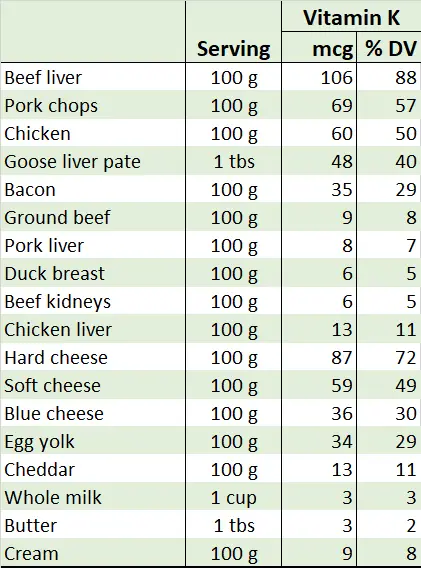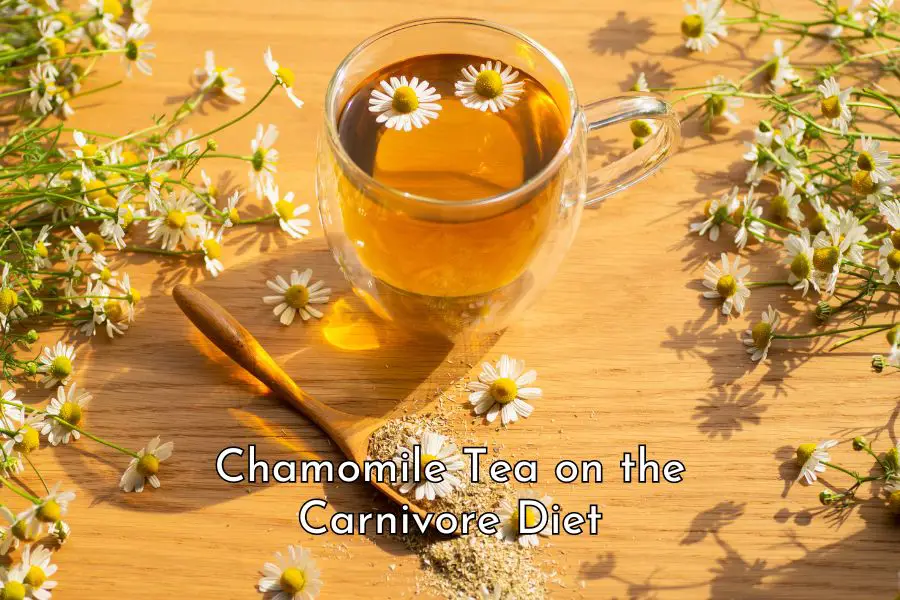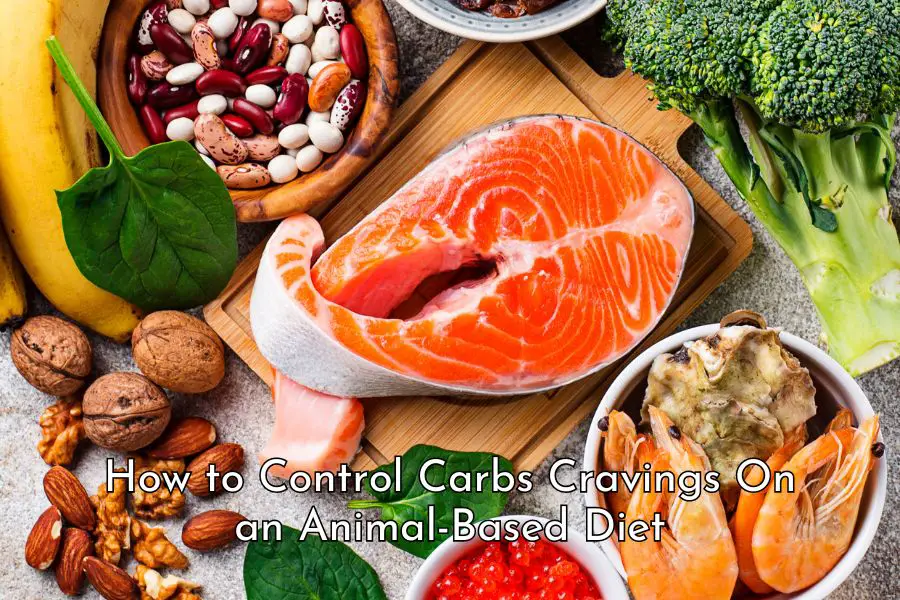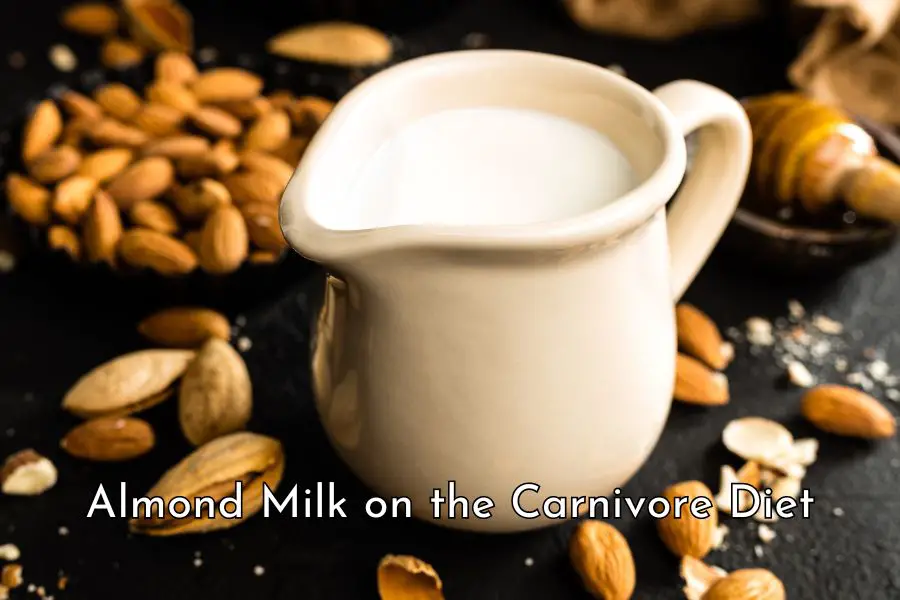This will likely be the most comprehensive post on the side effects of the carnivore diet you can find on the web. It addresses both short-term and long-term side effects of the carnivore diet.
The short-term side effects of the carnivore diet are the symptoms that you experience shortly after switching to this diet as your body adjusts to a new way of eating.
The long-term side effects of the carnivore diet are the potential health and social issues that you may experience after your body has become accustomed to the new diet.
Let’s dive into those short-term and long-term side effects of the carnivore diet in further detail below.
The short-term side effects of the carnivore diet
The short-term side effects of the carnivore diet are the temporary symptoms that you experience while your body tries to adapt to this diet. They may include:
- Severe headache
- Brain fog
- Diarrhea
- Bad breath
- Muscle soreness
- Night sweat
- Nausea
- Fatigue
- Food craving
- Vertigo.
The number of symptoms you experience, the severity of these symptoms, and the length of time you experience them will depend primarily upon the diet that you are on before you start the carnivore diet, how quickly you eliminate plant-based foods from your diet, and your general health condition. For example:
- If you are on the standard American diet before you transition to the carnivore diet, you are likely to experience more severe symptoms compared to someone who has previously been on a ketogenic diet because that person has already adapted to using fat as fuel
- If you decide to eliminate all plant-based foods at once, you are likely to experience more severe symptoms compared to someone who decides to eliminate them gradually over time
- If you are generally healthy and free from medical problems like gut issues, you are likely to fare better than someone who is unwell or with existing medical conditions.
However, these short-term side effects are normal because your body is going through a major shift from using carbohydrates as the main energy source to burning fat for fuel.
At the same time, because you are cutting out all plant foods and their accompanying toxins (natural pesticides and man-made pesticides), your body is going through a detox period.
However, rest assured that these are only short-term problems. By feeding your body nutrient-dense foods that are highly bio-available and free from toxins, your amazing body will do a wonderful job of healing and cleansing inside out.
Below are some tips to get you through this adaptation phase and dealing with those short-term side effects:
- Check with your doctor before you start and get your blood work done. The carnivore diet goes against the advice of modern medicine, but don’t throw the baby out with the bathwater, use it to your advantages
- Find the right time. If you can, schedule the start of the carnivore diet during a holiday, a period of relatively low activities or even take some time off if you can afford to
- Be committed. If you are not fully committed and do a half-hearted job, you may not see the results that others have experienced and feel discouraged. Please try not to cheat during the adaptation phase. Having said that, whatever you do, please don’t give up after a small stumble, you just need to start over again. Failing doesn’t make you a loser, giving up does
- Clear out all the non-carnivore foods in the fridge, freezer, and pantry to get rid of those temptations and stock up on meat
- Eat meat if you are hungry
- Eat meat if you are not hungry or feeling like having something
- Eat meat if you feel like you need some comfort foods. You may find a few strips of bacon and a slice of pate is just as comforting as a piece of chocolate but much more nutritious, and unlike chocolate, there is very little risk of overindulging carnivore foods. You can even make your own carnivore ice cream (see recipes here and here)
- Have some carnivore snacks ready. If you have to travel, prepare some meaty snacks so you are not tempted to get something unhealthy. Crispy bacon, boiled eggs, pork cracklings, biltong, and beef jerky are good choices
- Get leaner cuts of meat if you encounter prolonged diarrhea, and gradually switch to fattier cuts when things start to improve
- Don’t count calories, your body will tell you when to stop, meat is satiating and very hard to overeat
- Don’t weigh yourself, you may put on weight initially but that’s okay, focus on one thing at a time and at this stage that one thing is to help your body transition to the new diet
- Drink a lot of water and bone broth which is very nourishing and healing (here is a super easy carnivore bone broth recipe)
- Use electrolytes to help with lost sodium and potassium
- Exercise to help with the detoxing process and improves sleep quality
- Rest a lot and be gentle to your body, it’s going through a lot
- Be patient and remember everybody is different. Some may take a couple of weeks, some may take 30 days and some may need months to get used to the new diet. For example, if you have been on the standard American Diet or eating junk foods all your life, let’s face it, your body has suffered a lot and it will take a lot of time to undo the damages if that is biologically possible at all
- Use a habit tracker to help motivate and visualize your progress (free printables available here)
- Plan something to reward yourself and celebrate your achievement as you achieve milestones like 30 days, 90 days, or a year on the carnivore diet. You certainly deserve it!
The long-term side effects of the carnivore diet

1. Risk of malnutrition if not done properly
In this post, I talk in detail about how to do the carnivore diet properly.
Like any other diet, there is also a risk of malnutrition if you don’t do the carnivore diet properly.
In particular, if you only eat meat and drink water and don’t incorporate organ meat, don’t eat a variety of animal source foods, or follow a dirty’ carnivore version by consuming mostly processed meat, you may be at risk of malnutrition. Below are some potential nutrient deficiencies.
Vitamin C
Vitamin C deficiency is a very serious medical condition. This is because of the vital role vitamin C plays in the synthesis of collagen, the most abundant protein in the human body that can be found in blood vessels, skin, connective tissues, bones, and muscles. Vitamin C is also needed in the synthesis of dopamine, norepinephrine, epinephrine, and carnitine. It is widely known as a powerful antioxidant, plays an important role in immune function, and improves the absorption of nonheme iron.[1, 2, 3, 4]
The vitamin C content of animal foods is very small compared to that of many plant foods. Although small, the vitamin C in animal foods appears to be sufficient to meet your body’s needs to avoid scurvy (see this post for more detail).
However, because vitamin C is easily destroyed by heat, if you mostly eat well-cooked meat, there would be very little vitamin C remained. Furthermore, organ meats are packed with essential nutrients and have a much higher vitamin C content than muscle meat, if you don’t eat nose-to-tail, you are at risk of not getting sufficient vitamin C.
Omega 3
Omega 3 fatty acids are critical for your health because they are an integral part of cell membranes throughout the body and are important for eye, brain, heart, joint, and mental health. However, your body can’t make and must get these fatty acids from food. [5, 6]
Seafood is the best source of omega 3 fatty acids. A 100 grams or 3.5 oz serving of grass-fed beef will give you only 80 mg of omega 3, whereas the same serving of salmon, herring, and sardine has a whopping amount of 2,260 mg, 2,366 mg and 1,480 mg respectively[7, 8].
Our ancestors’ diet had an omega 6 to omega 3 ratio of approximately one to one.[9] If you have cut out seed oil and other plant foods and significantly reduced your omega 6 intake, your body’s need for omega 3 is also lower accordingly.
However, if your carnivore diet consists of only meat and water and no seafood or eggs, you are still at risk of not getting sufficient omega 3 fatty acids.
Calcium
As can be seen in the table below, meat, poultry and eggs have very little calcium.[10]
| 100 g serving | Calcium | %DV |
|---|---|---|
| Pork chop | 8 mg | 1% |
| Beefsteak | 16 mg | 2% |
| Lamb chop | 20 mg | 2% |
| Bison steak | 6 mg | 1% |
| Chicken | 14 mg | 1% |
| Egg, whole | 56 mg | 6% |
If the above is your staple food on the carnivore diet, you are unlikely to meet your recommended intake of around 1 gram of calcium a day.[11]
Calcium is important because it is needed for many bodily functions and used as the main material for teeth and bone formation.
It is therefore important to incorporate calcium-rich foods in your diet, for example, dairy products and/or fish with bones in, or make your own calcium supplements from eggshell and bones (please read this post for detailed instrutions).
Folate
Folate deficiency can cause anemia which is a condition where your body makes fewer red blood cells than normal. Children of mothers with this condition can have an increased risk of being born with neural tube defects. [12, 13, 14]
There is not much folate in meat but organ meat and eggs are rich in folate. For example, 100 grams of beef steak has only 13 mcg of folate whereas 100 grams of beef liver has 290 mcg of folate, delivering 72% of the RDI. Chicken liver is even better with 100 grams delivering 588mcg or 147% of the RDI. [15]
This emphasizes the importance of eating a wide variety of animal source foods to get all essential nutrients to meet your body’s needs.
Vitamin A
Vitamin A is important for vision, immune function, reproduction, and cellular communication. Similar to folate, meat has very little vitamin A but organ meat like the liver is a rich source of vitamin A. One small slice of beef liver is enough to deliver the daily recommended intake of vitamin A. Other sources of vitamin A are seafood, eggs, and dairy products. [16, 17, 18]
If you only eat meat and not much else, there is a risk that you don’t get enough vitamin A in your diet.
Vitamin K
There are two types of vitamin K: vitamin K1 (found plenty in green leafy vegetables) and vitamin K2 (found in modest amounts in various animal-based and fermented foods like natto, liver, and cheese.[19]
Vitamin K1 from plant sources is poorly absorbed by the human body. For example, the body absorbs only 4% to 17% as much phylloquinone from spinach as from a tablet. Vitamin K2, although less abundant, is found to have ten times the absorption rate of vitamin K1. [20, 21, 22]
You can find a decent amount of vitamin K in organ meat like liver and hard cheese and a small amount in meat as shown in the table below.[23]

This emphasizes even more the importance of eating a wide variety of animal source foods to get adequate nutrients to meet your body’s need.
Fiber
While you will find elsewhere on the web that people cite the lack of fiber as one of the side effects of the carnivore diet, in my view, the absence of fiber is actually a good thing, and definitely not one of the side effects.
Fiber comes from the plant cell walls that provide shapes and architectural supports for the plants. It is unique to plants and doesn’t exist in the human body.[24, 25]
Fiber has zero protein, fat, vitamin or mineral that your body needs. It can’t be digested by your body and is ultimately excreted.
Dr Tan and Seow-Choen, in a 2007 editorial for the World Journal of Gastroenterology, call fiber “the ultimate junk food. It is neither digestible nor absorbable and therefore devoid of nutrition. People who ingest fiber are ingesting them to make faeces only“.[26]
Claims of health benefits of fiber are generally based on results of epidemiological studies which show an inverse relationship between fiber intake and risk of cancer, cardiovascular disease, diabetes, obesity, and some gastrointestinal diseases. [27, 28, 29, 30]
However, epidemiological studies generally are observational studies that can only show association and can not prove cause and effect.
In a number of controlled trials, fiber is not found to provide protective benefits.[31, 32, 33, 34, 35]
In fact, eliminating fiber has actually been found to be beneficial with secretion. In a remarkable study by Ho et al (2012)[36] published in the World Journal of Gastroenterology, 63 patients with idiopathic constipation conditions were put on a no-fiber diet for two weeks. Thereafter, the patients were asked to reduce the amount of dietary fiber intake to a level that they found acceptable.
At six months, 41 patients who remained on a no fiber diet no longer suffered from constipation, bloating, straining, pain and bleeding.
In contrast, the 6 patients who chose to stay on a high fiber diet still had all of these symptoms.
The 16 patients who were on a reduced fiber diet experienced some improvements accordingly.
I’ve written a post about fiber and whether you need it on the carnivore diet. If you are interested to learn more, you can read it here.
2. Missing out on dietary acute stressors
Although animal source foods can provide you with all nutrients that your body needs, some argue that plant foods with their anti-nutrients can act as acute stressors to make your body more resilient and stronger.
When you consume plant-based foods, anti-nutrients present in those foods actually cause inflammation in your body. In response, your body produces its own antioxidant called glutathione to reduce inflammation. Over time, your body will adapt to those hormesis stressors and become stronger.
If you can’t handle even a small amount of plant foods for health reasons, there are a number of alternatives to getting those acute stressors to build a stronger body from non-plant sources (see this post for further detail):
- Physical exercise
- Cold exposure
- Heat exposure
- Immersing in nature.
3. Metabolic flexibility is reduced
Imagine a scenario where you’ve been eating meat only for 20 years and for some reason (e.g. in a S.H.T.F. scenario) you suddenly don’t have access to your usual steak, eggs, organ meats, and bone broth anymore. You will be faced with two choices: i) eat plant foods, if they are available, to survive, or ii) refuse to eat and die.
If you decide to eat plant foods again after such a long period of time, you will feel very unwell initially because you’ve lost the metabolic flexibility of being able to handle both animal and plant-based foods. It will take some time for you to adapt to plant foods again.
I know this is an extreme scenario but one can never say never.
What you could do to maintain metabolic flexibility is occasionally eat a small amount of plant foods that are in seasons but be mindful of plant toxins and learn ways to reduce the toxic load from plant foods by:[37]
- Soaking grains, nuts, seeds, and beans can help deactivate enzyme inhibitors, however, lectin is not affected by this method of deactivation
- Fermenting can reduce anti-nutrients like phytic acid, polyphenol, cyanide, oxalate, trypsin inhibitor, protease inhibitor, and tannin
- Sprouting can reduce anti-nutrients like phytate, trypsin inhibitor, amylase inhibitor
- Cooking whole grains, beans and vegetables can reduce certain anti-nutrients such as phytic acid, tannins, and oxalic acid.
4. Difficult to fit in socially
In the age of plant-based everything and the ‘Meat Free Monday’ movement, it is not easy to fit in when you are amongst a tiny minority following the carnivore diet.
If you can’t convince your whole family to be on the carnivore diet with you, you will be eating different foods from the rest of the family at the dinner table, or you won’t be eating with them much at all. When on the carnivore diet, you’ll find that you won’t feel hungry very often and probably will only eat one to two meals a day and hardly snack at all between meals.
You probably will have no issue telling your friends and colleagues that you are now a vegan or a vegetarian. However, I bet you will be hesitant telling them that you are now on a meat-based diet! You will surely be bombarded with questions about your dietary choices. Some may be genuinely concerned about your health. However, some may be agitated or hostile. If you are vocal about your choice, you may be facing backlash from vegan or vegetarian advocates.
Summary
The short-term side effects of the carnivore diet are the temporary symptoms that you experience while your body tries to adapt to this diet. They may include severe headache, brain fog, diarrhea, bad breath, muscle soreness, night sweat, nausea, fatigue, food craving and vertigo.
The long-term side effects of the carnivore diet includes the following:
- Risk of malnutrition if you don’t do it properly, for example, not eating a variety of animal source foods and not eating nose-to-tail.
- Absence of dietary acute stressors in the form of plant anti-nutrients that can make your body more resilient and stronger.
- Less flexible metabolically if you are on a meat-only diet and have no carb for a long time.
- Difficulty in fitting in socially.
Disclaimer: The information in this post is for reference purposes only and not intended to constitute or replace professional medical advice. Please consult a qualified medical professional before making any changes to your diet or lifestyle.





